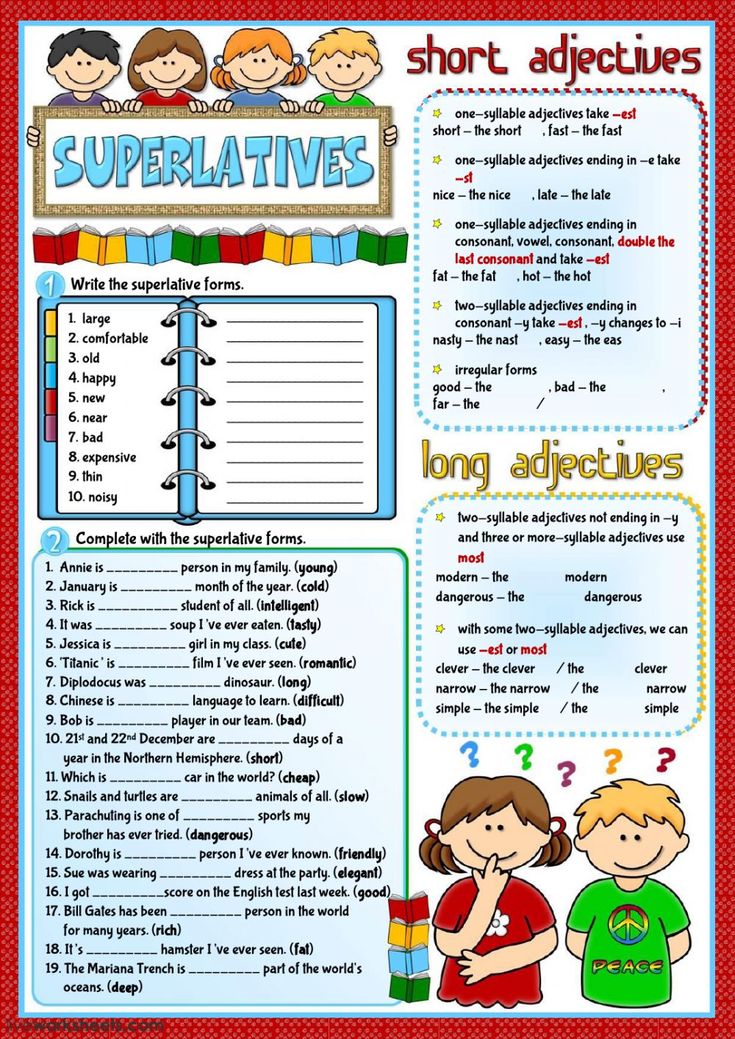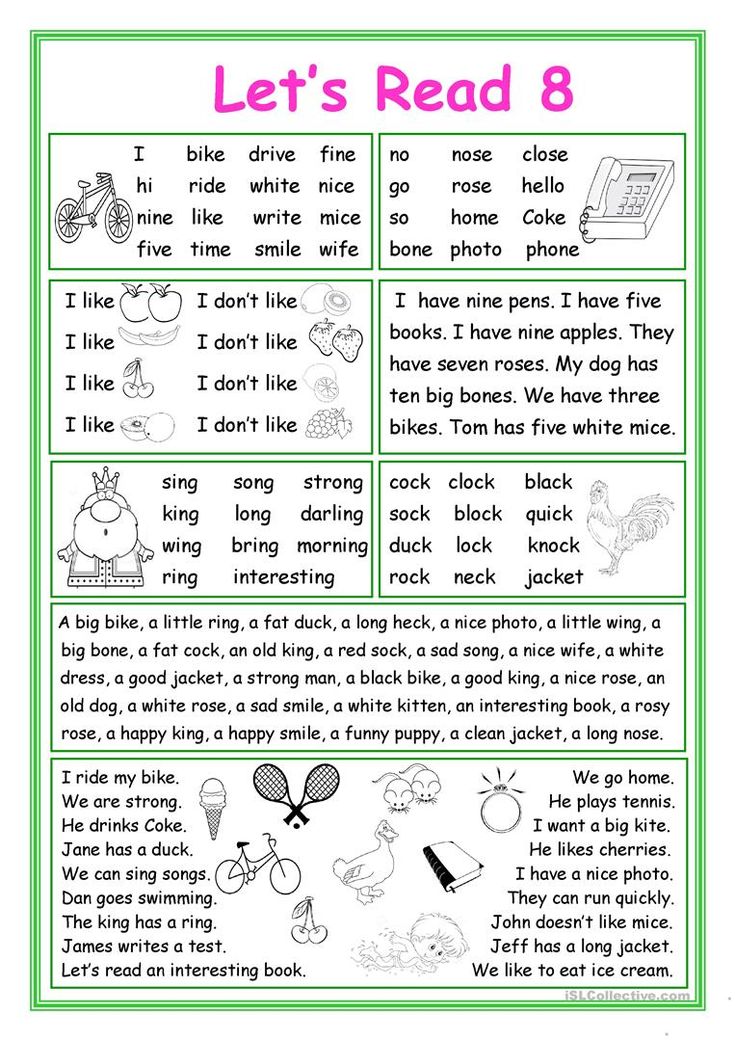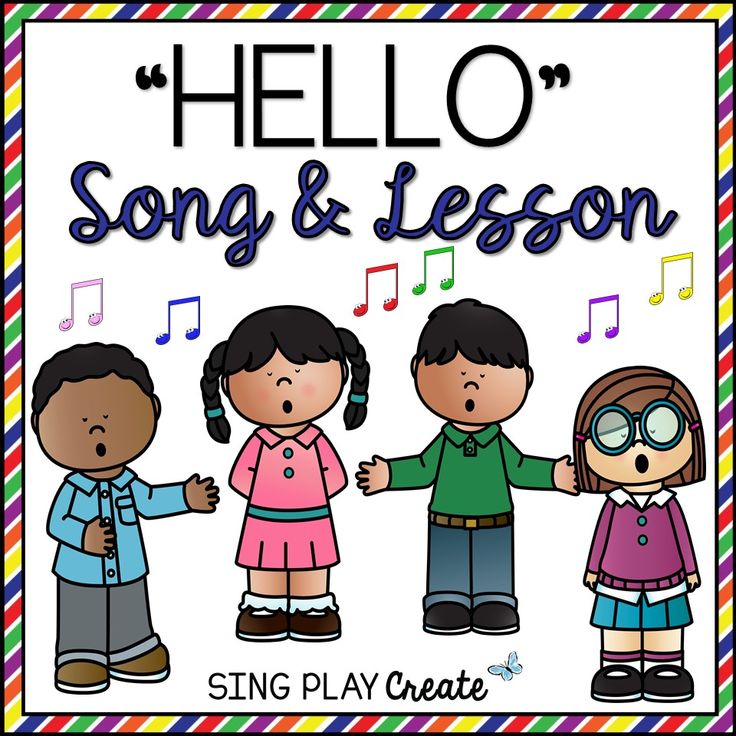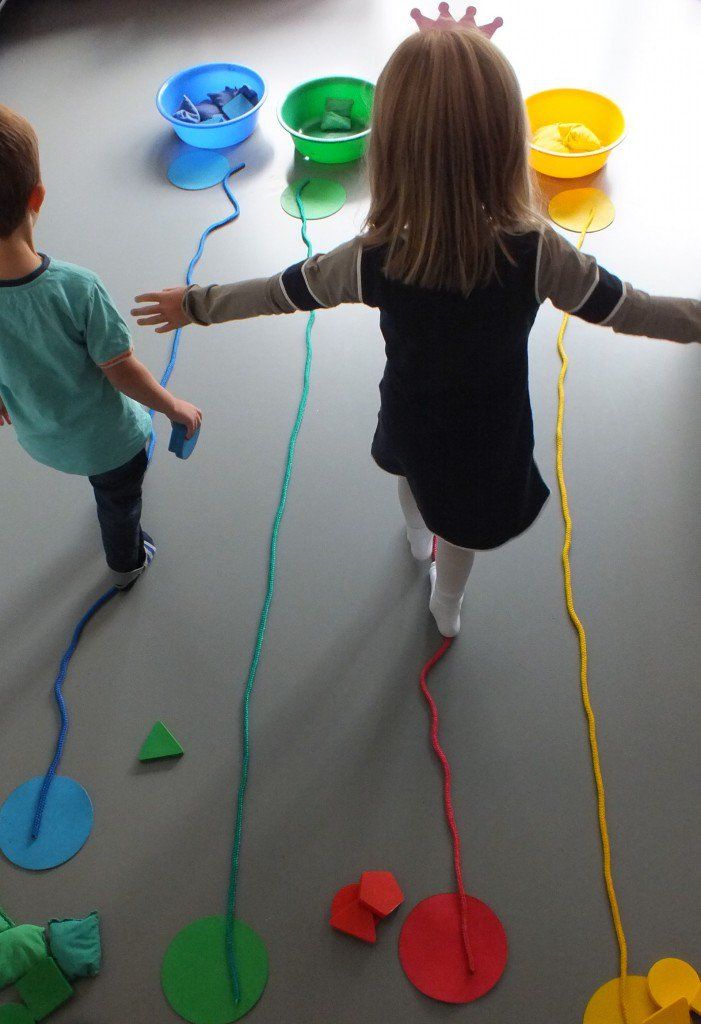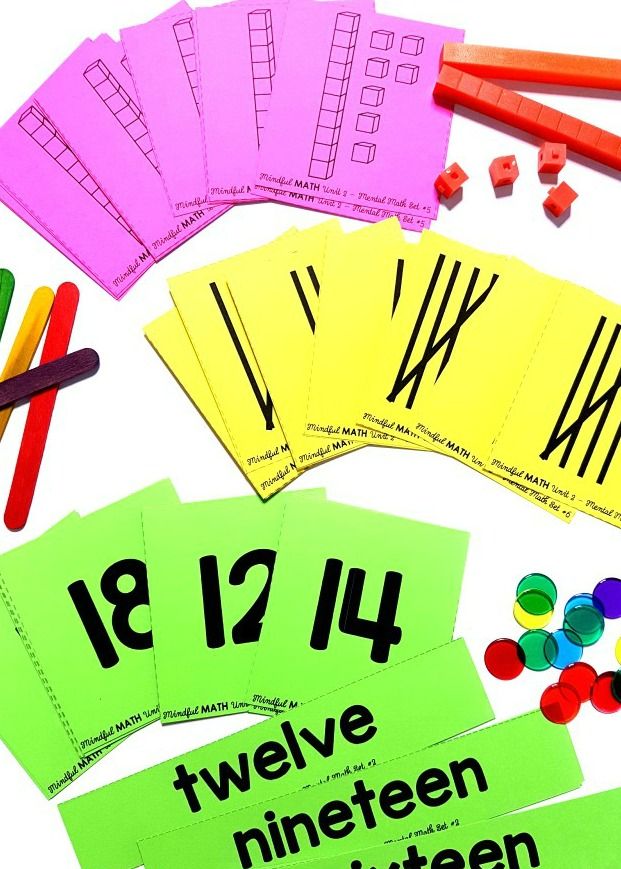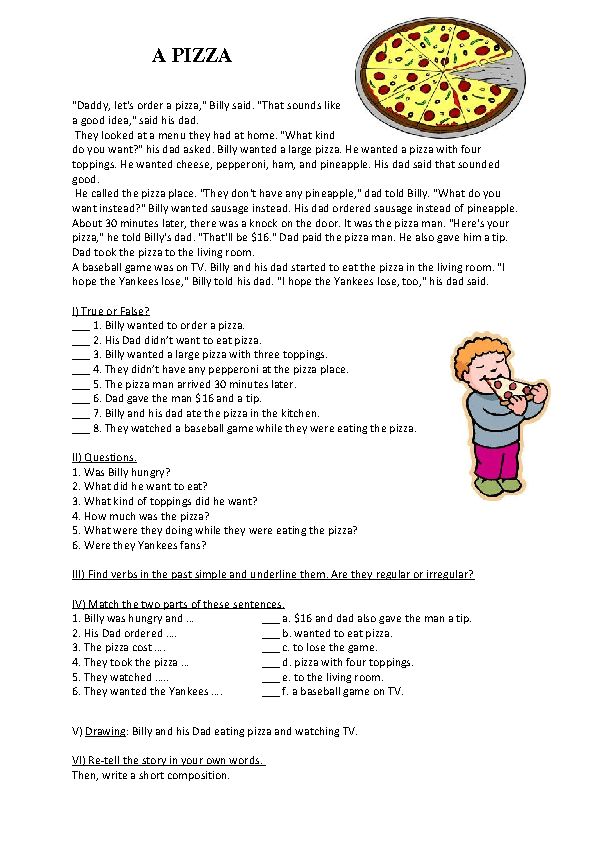Vocabulary lists for children
The Basic Spelling Vocabulary List
By: Steve Graham, Karen R. Harris, Connie Loynachan
This list was created to help teachers know which spelling words should be taught to kids in grades 1–5. The list contains 850 words that account for 80 percent of the words children use in their writing — the ones they need to be able to spell correctly.
This list was devised to help educators know which spelling words should be taught to children. The list contains 850 words that account for 80 percent of the words children use in their writing — the ones they need to be able to spell correctly.
Mastering this relatively small corpus of words yields a high rate of return. For example, the most common 1,000 words are used 13 times more frequently than the next most common 1,000 words. It also provides teachers flexibility in planning spelling instruction, providing an opportunity to give children the "basics" while supplementing with other spelling words germane to classroom activities.
Grade level for each word was determined based upon difficulty, pattern of occurrence in children's writing across grades, and grade placement on current vocabulary lists and spelling materials.
Words that children have difficulty spelling correctly are marked with an asterisk.
Grade 1 | |||
|---|---|---|---|
| a | fat | like* | sat
|
Back to Top
Grade 2 | |||
|---|---|---|---|
| about* | father* | lives | set |
Back to Top
Grade 3 | |||
|---|---|---|---|
| able | even | mind | spelling |
Back to Top
Grade 4 | |||
|---|---|---|---|
| across | during | mountain | sure* |
Back to Top
Grade 5 | |||
|---|---|---|---|
| although | different* | planet | suddenly
|
Back to Top
Graham, S.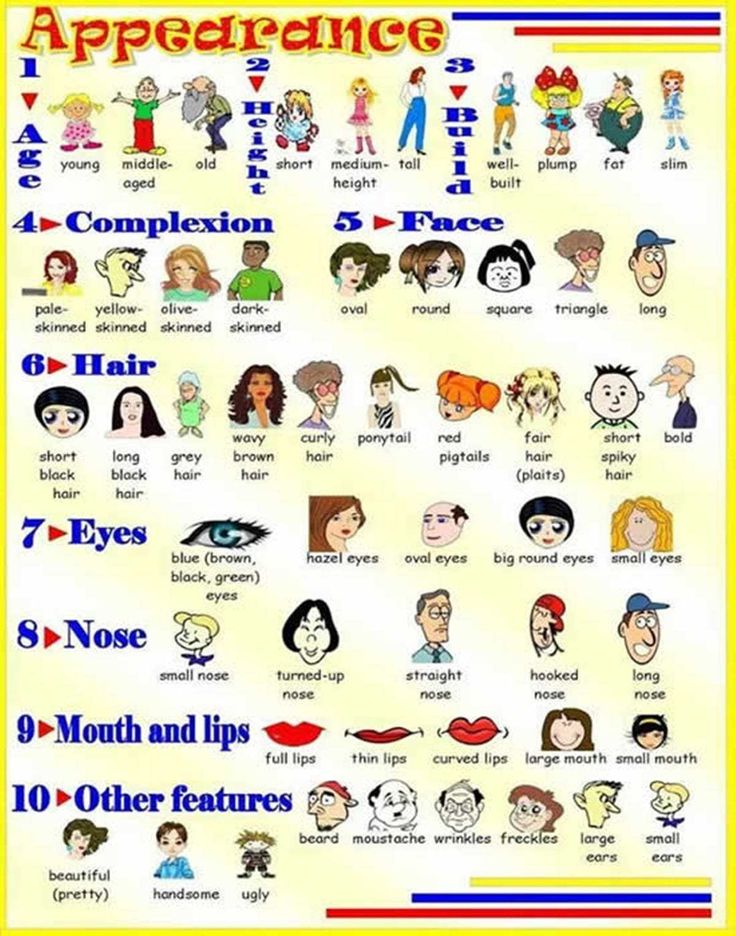 , Harris, K.R. and Loynachan, C. (1993). The Basic Spelling Vocabulary List. Journal of Educational Research 86(6) 363-368.
, Harris, K.R. and Loynachan, C. (1993). The Basic Spelling Vocabulary List. Journal of Educational Research 86(6) 363-368.
Reprints
You are welcome to print copies for non-commercial use, or a limited number for educational purposes, as long as credit is given to Reading Rockets and the author(s). For commercial use, please contact the author or publisher listed.
Related Topics
Early Literacy Development
Spelling and Word Study
Vocabulary
Writing
New and Popular
Print-to-Speech and Speech-to-Print: Mapping Early Literacy
100 Children’s Authors and Illustrators Everyone Should Know
A New Model for Teaching High-Frequency Words
7 Great Ways to Encourage Your Child's Writing
Screening, Diagnosing, and Progress Monitoring for Fluency: The Details
Phonemic Activities for the Preschool or Elementary Classroom
Our Literacy Blogs
Shared Reading in the Structured Literacy Era
Kids and educational media
Meet Ali Kamanda and Jorge Redmond, authors of Black Boy, Black Boy: Celebrating the Power of You
Get Widget |
Subscribe
100 Vocabulary Words Kids Should Know ~ Jersey Family Fun
By: Author Jennifer Auer
Posted on Published:
I admit when I was a high school student I didn’t know all the vocabulary words kids should know.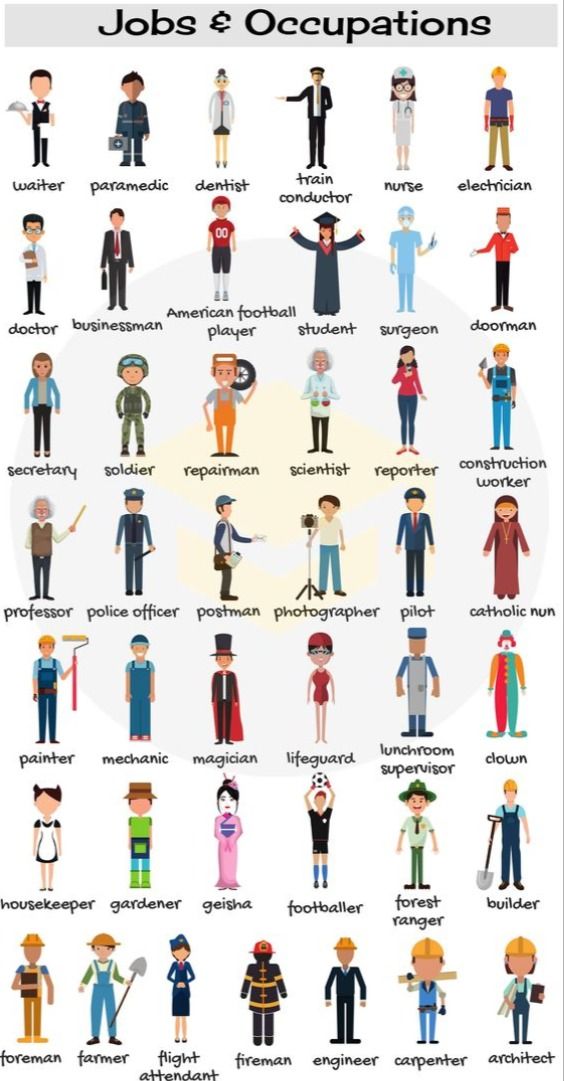 I didn’t take vocabulary as seriously as I should and I didn’t think about how important it would be to me years later.
I didn’t take vocabulary as seriously as I should and I didn’t think about how important it would be to me years later.
Fast forward to my twenties when I was a teacher for the Princeton Review. I learned then that there was a core 500 vocabulary words kids should know for the SAT. Yes, it’s true. Turns out the College Board has this list of words that they regularly use in the verbal and reading sections of the SAT. Knowing those words can mean the difference between the minimum score or one a hundred points or more higher. Over the course of a 6-week SAT prep course we would work to help students memorize these words. Fifty words a week, it’s a lot, but it’s what happens if you wait till right before the SAT to prep for it.
What if though, instead of waiting till the SATs, we started working with our kids now on their vocabulary skills? Wouldn’t it be easier to study and learn 5 words a week of the vocabulary words kids should know than waiting till they are in high school?
After all, vocabulary shows up EVERYWHERE! It’s not just on the SAT your child will take in high school.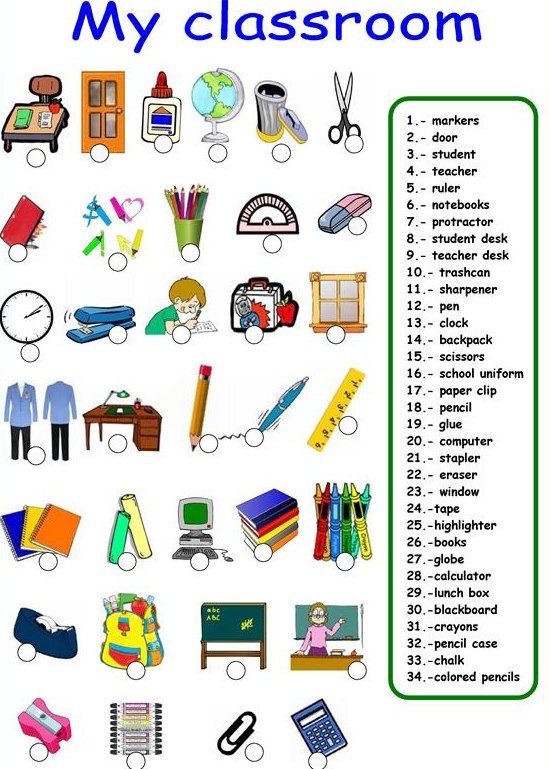 Vocabulary plays a role in nearly every standardized test students take from grade school through post college. When it comes to essay writing, using impressive vocabulary words and using them correctly can make the difference between an average grade and the best grade possible.
Vocabulary plays a role in nearly every standardized test students take from grade school through post college. When it comes to essay writing, using impressive vocabulary words and using them correctly can make the difference between an average grade and the best grade possible.
Your understanding of what you read and hear is, to a very large degree, determined by your vocabulary, so improve your vocabulary daily.
Zig Ziglar
With that in mind, as part of our Jersey Classroom, I have reviewed the latest recommended lists of vocabulary words kids should know and combined that with my love of New Jersey and experience as a teacher. I have developed 20 lists of vocabulary words, 5 words each and I have grouped them around themes such as places kids like to visit and things they like to do in New Jersey such as Medieval Times, Historic Cold Spring Village, Six Flags Great Adventure, the Tuckerton Seaport, Wild West City, Jersey Shore Pirates, and more.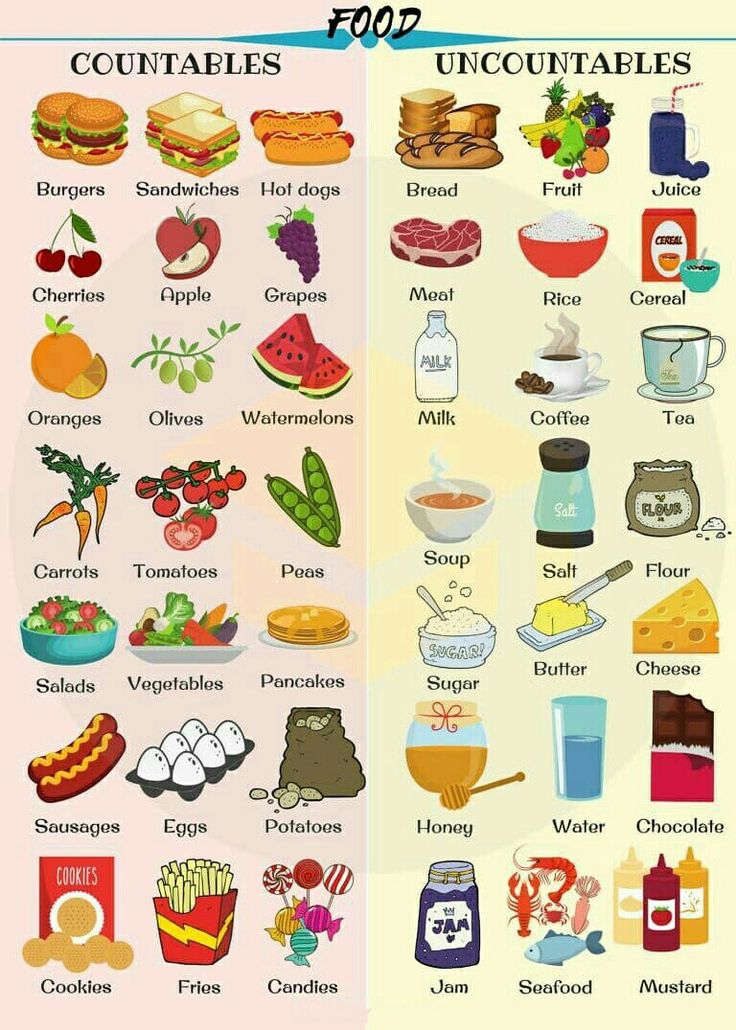 Because when kids can associate vocabulary words with things that are relevant to them they are more likely to retain what those words mean.
Because when kids can associate vocabulary words with things that are relevant to them they are more likely to retain what those words mean.
100 Vocabulary Words Kids Should Know
Beginning September 1, 2020, I will begin sharing vocabulary words kids should know centered around themes that will make it easier for kids to remember. There will be a different vocabularly list for each school week, until December 21, 2020. From December 19, 2020 till January 1, 2021 no new lists will be posted. We’ll be taking a winter break and encourage you all to do so as well. The vocabulary lists will be back on January 4, Mondays through Fridays, until January 29, 2021. That will make for 20 weeks of vocabulary lists of 5 words each. Depending on what is happening with our schools and the popularity of our vocabulary lists, we may continue on beyond that.
This week’s 5 Vocabulary Words Kids Should Know
We’ll define each of this week’s vocabulary words below BUT we encourage you to download and print out our vocabulary worksheet and have your children use a dictionary to look up each word themselves, as that is part of the requirement for the learning standard. The link to download and print is below the list of words. Then, you can use our list below to check their work.
The link to download and print is below the list of words. Then, you can use our list below to check their work.
This week’s vocabulary theme is Words from boardwalk games.
aptitude
Part of speech – noun
Definition – a natural ability, talent
tactic
Part of speech – noun
Definition – viewing the future with anxiety or alarm : feeling or showing fear or worry about the future
debris
Part of speech – noun
Definition – the remains of something broken down or destroyed -balloon dart
sabotage
Part of speech – verb
Definition – to destroy or damage (something) deliberately so that it does not work correctly, to cause the failure of (something) deliberately
replenish
Part of speech – verb
Definition – to fill or build up again
September-28-Vocabulary-Boardwalk-Games-listDownload
These worksheets were created with Canva software. It’s easy to use. If you need to create your own printable items check out Canva with my affiliate link.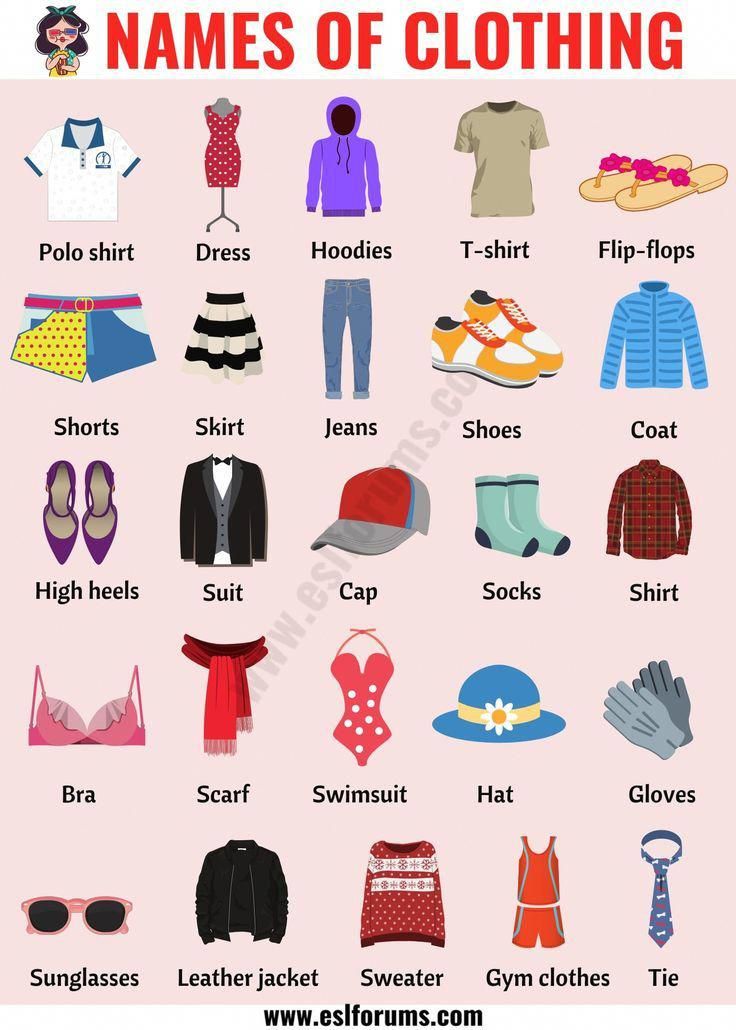
Come back to this post on Friday
On Fridays, we’ll share a printable you can use to test your child on how well they learned this week’s vocabulary words.
October-2-Vocabulary-Boardwalk-GamesDownload
October-2-Vocabulary-Boardwalk-Games-Answer-KeyDownload
What New Jersey Learning Standards are met by developing vocabulary skills?
The following New Jersey Learning Standards are tied to vocabulary skills:
- NJSLSA.L6
For grades fourth through sixth, these progress indicators are tied to vocabulary:
- L.4.4
- L.4.6
- L.5.4
- L.5.6
- L.6.4
- L.6.6
5 Ways to help kids study 100 vocabulary words kids should know
Join the Jersey Classroom
Every school day members of the Jersey Classroom Head of the Class plan get a different printable to help their children build their vocabulary skills.
If you’ve missed our previous week(s)’ vocabulary lists or don’t want to have to visit our site each week for the latest vocabulary list for kids take a look at our Jersey Classroom options.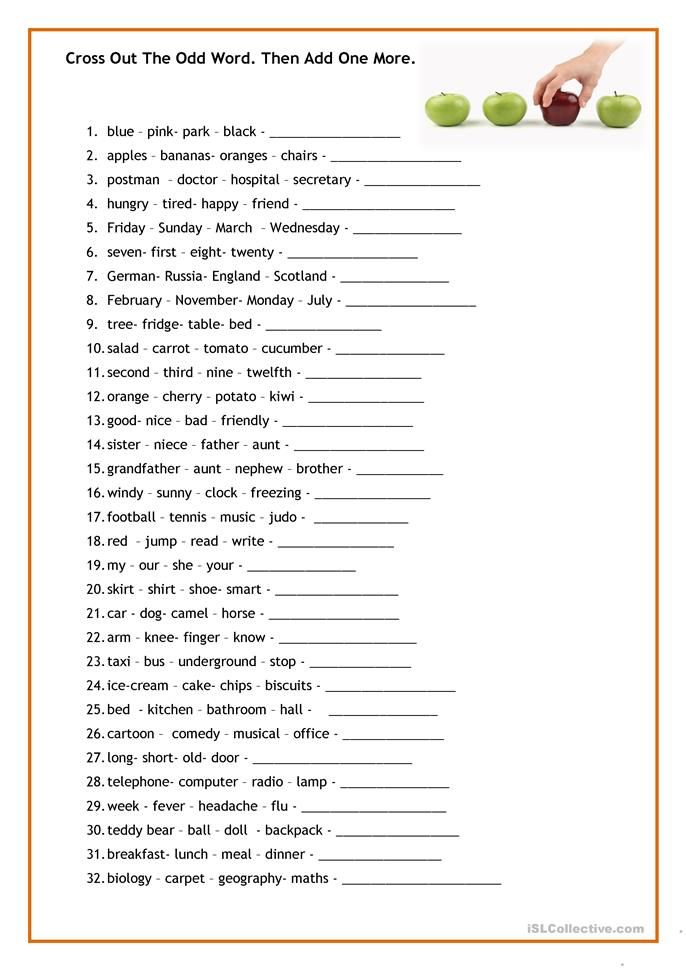 By choosing one of three plans, you’ll be able to have access to past and future vocabulary lists by either visiting a closed Facebook group OR having access to your own online classroom where lists and vocabulary worksheets will be uploaded and stored for your use. I’m creating and uploading new vocabulary lists each week and practice worksheets and printables each school day.
By choosing one of three plans, you’ll be able to have access to past and future vocabulary lists by either visiting a closed Facebook group OR having access to your own online classroom where lists and vocabulary worksheets will be uploaded and stored for your use. I’m creating and uploading new vocabulary lists each week and practice worksheets and printables each school day.
Play Games
Play a board game or other family game that builds vocabulary skills. Some of my favorites include Blurt, Read My List, Pictionary and Noodle Speedoodle. All are available on Amazon with my affiliate link.
- Blurt
- Read My List
- Pictionary
- Noodle Speedoodle
Make Flash Cards
I know it may sound boring, but writing out vocabulary words with their definitions activates other parts of your child’s brain and really does help them remember. It’s as simple as using index cards and writing the word on one side and the definition on the other.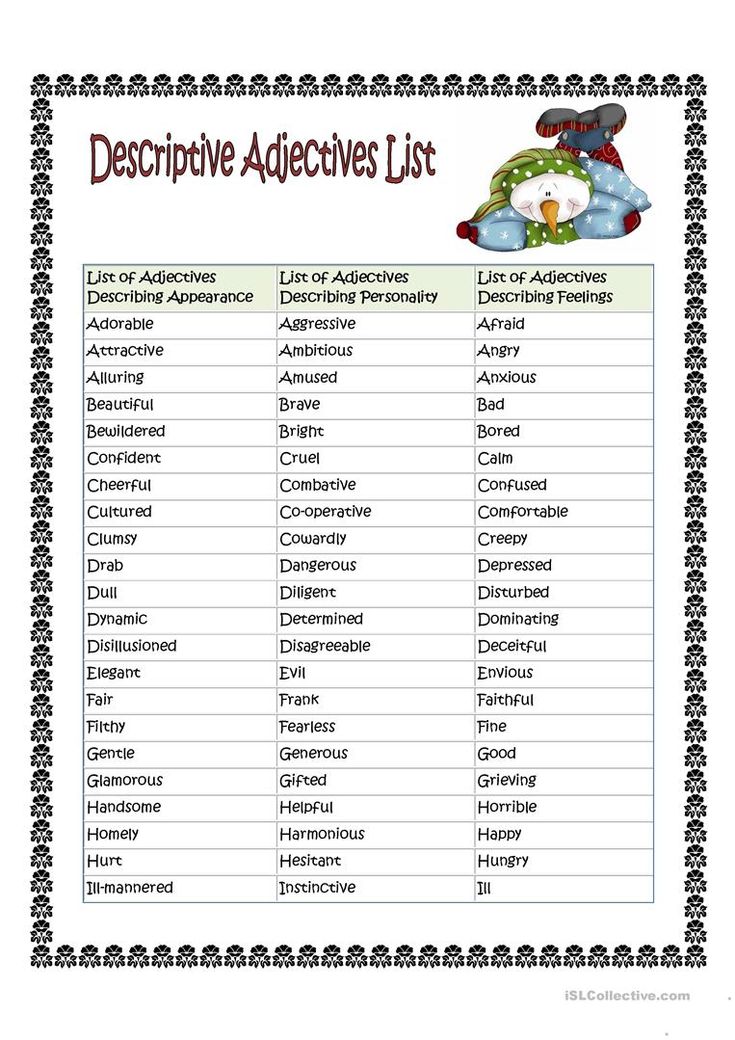 If you don’t have index cards cut down a regular sheet of paper into smaller squares. If you want to make it a little more fun, buy some colored index cards to use.
If you don’t have index cards cut down a regular sheet of paper into smaller squares. If you want to make it a little more fun, buy some colored index cards to use.
- I like these blank flashcards in assorted colors I discovered on Amazon. They come in a set of 1000 hole-punched cards with 5 metal sorting rings. I just ordered a set for my kids. Order one for your kids with my affiliate link.
Use it!
The more your kids use the vocabulary words, the more they will remember it. Challenge yourself and your kids to see who can use this week’s vocabulary words the most. If you’ve got the coins start a reward jar. Every time your child uses one of this week’s vocabulary words, from the list of 100 vocabulary words kids should know, correctly add a coin to the jar. At the end of the week, you can decide if they automatically get the money in the jar or if it goes to the child who used the most vocabulary words that week.
Write it out!
If you’ve been using our Writing Prompts for Kids, task your child with weaving the vocabulary words into their writing.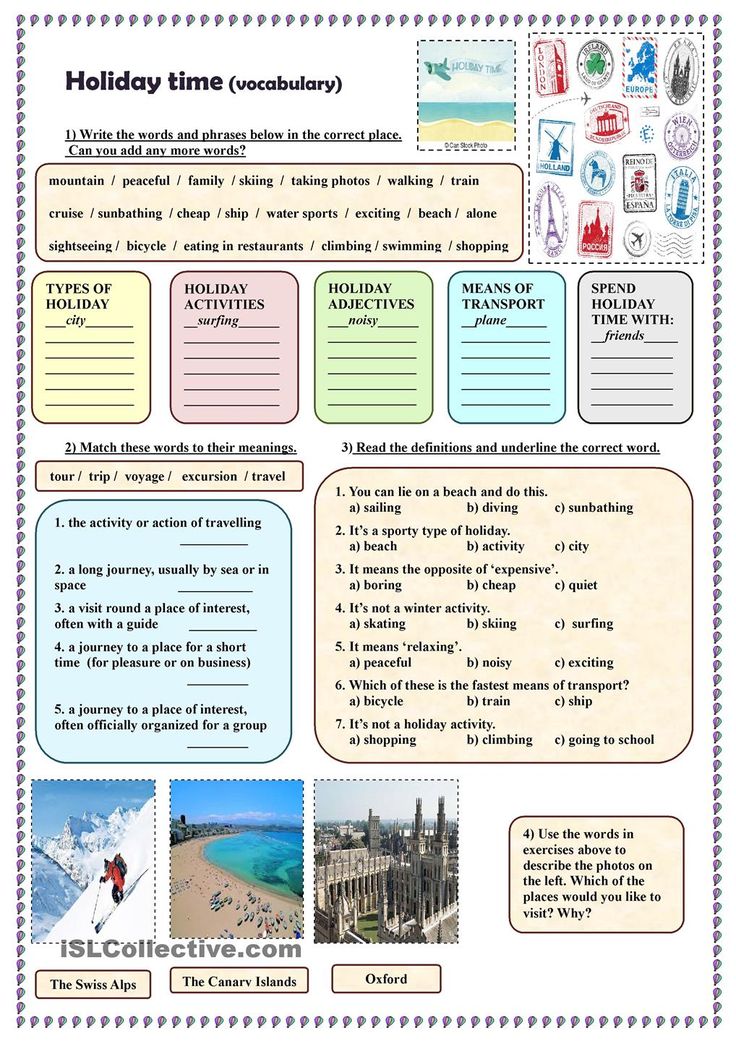 Have them write a letter to a friend or family member using the words. Writing not their thing? They can illustrate a picture or create a comic book strip that shows they know what the words mean.
Have them write a letter to a friend or family member using the words. Writing not their thing? They can illustrate a picture or create a comic book strip that shows they know what the words mean.
Other Vocabulary Resources
- Get your kids a recent Merriam-Webster’s Collegiate Dictionary (Affiliate link)
- Vocabulary Flash Cards (Affiliate link)
- Merriam-Webster’s Website has a Word of the Day
- Check the App Store or Google Play for Vocabulary Apps that offer words of the day, digital flash cards, and vocabulary games.
More resources for homeschooling and virtual learning in New Jersey
If you are new or have been homeschooling for years or are trying out virtual learning for the first time, we’re here to help. Click over to learn more about the Jersey Classroom, our way of providing free printables and educational worksheets for New Jersey students.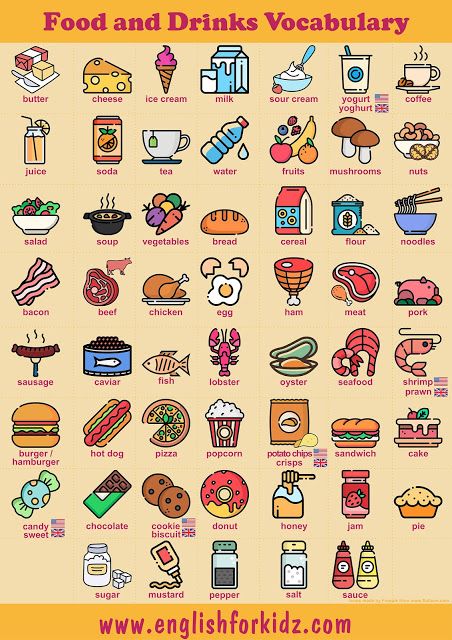 Not in New Jersey? While these printables and worksheets are themed for kids in New Jersey they can be a great resource for any kids who like to have fun.
Not in New Jersey? While these printables and worksheets are themed for kids in New Jersey they can be a great resource for any kids who like to have fun.
My first words: English words for children
How to raise a polyglot child? The answer is simple: start learning languages with him as early as possible. Basic English will be an excellent foundation for the future knowledge of the baby and will help develop learning skills, because the brain of children at an early age absorbs an almost endless amount of information like a sponge. The main thing is to present it correctly.
In this article you will find not only simple first English words for children, but also recommendations for learning them. Open to your kid the fascinating world of English! nine0003
At what age do we start teaching?
Opinions of experts and parents themselves about the age at which it is worth starting to learn English with a child differ. Of course, you can start singing lullabies to your baby in English even from infancy, but your strength will be almost wasted.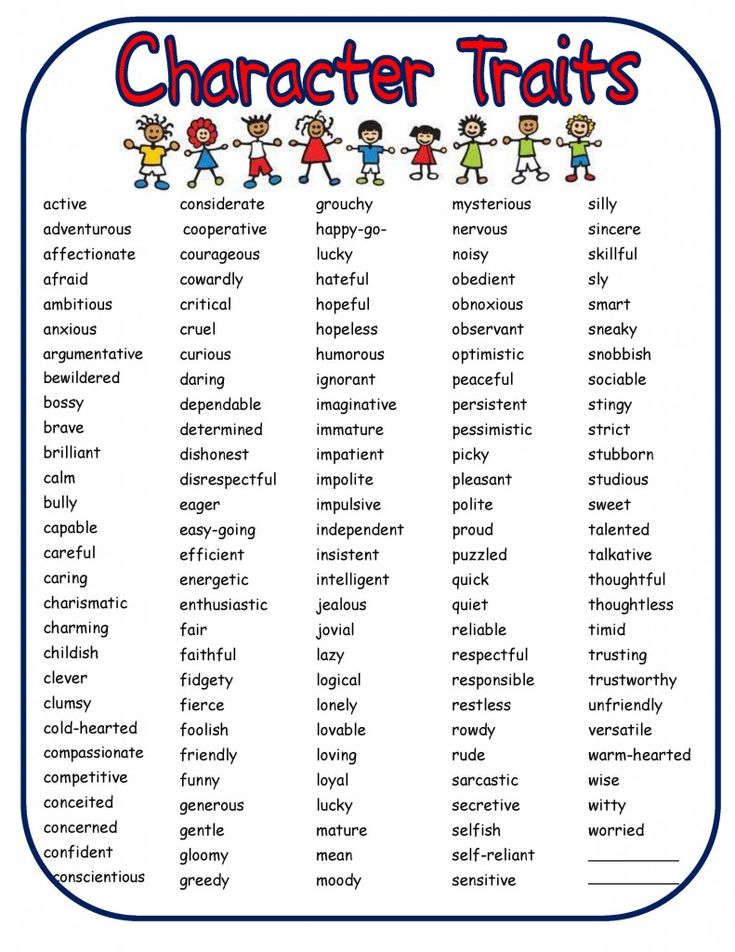
Most agree that the most optimal age from which the average child begins to adequately learn English as a foreign language is 2.5-3 years. It is believed that at this age the process of formation of native speech is already ending. That is, the child must be able to clearly pronounce Russian sounds and words, as well as build sentences and have a coherent speech. nine0003
The exceptions here are when the child grows up in a multicultural environment. For example, if the mother is Russian and the father is English, then it is possible to communicate with the child in two languages from the very beginning. True, then your child will be funny to form sentences, and questions like: “Mom, can I have an apple” will constantly sound in the house.
This approach is good when the family lives abroad, where the main language is a foreign one. As the child gets older and starts attending kindergarten, the child will understand the difference between the languages of his parents and begin to use the words in the correct context.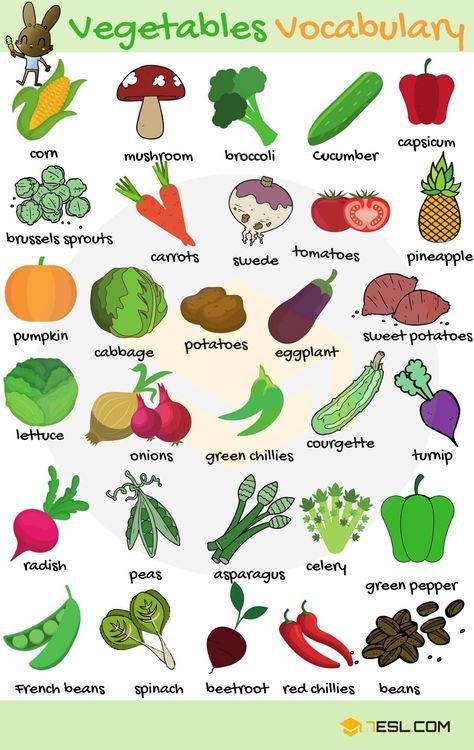 This applies, by the way, not only to English, but also to any foreign language. nine0003
This applies, by the way, not only to English, but also to any foreign language. nine0003
If you want your child to speak only English from the very beginning, you can create an artificial multicultural environment. For example, at home talking with the baby only in a foreign language.
Is it possible to send a child to a language nursery or kindergarten with an English focus? Then do it without any hesitation. So the multicultural environment will be natural for the child: in the nursery they will communicate with him mainly in English, and at home you will be able to talk with the baby in Russian. In specialized language kindergartens, teachers will help your child learn English in a natural environment, and at home you can consolidate knowledge with him through various games and riddles. nine0003
If it is not possible to send your child to a language kindergarten, start learning English at home using the same methods that you used to learn your native language with him.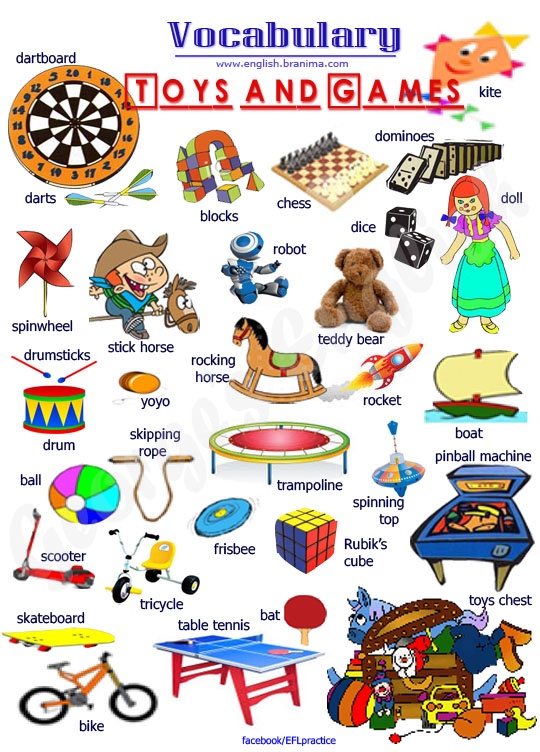
How to learn English with a child?
At a young age, of course, we are not talking about grammar or writing English words. To begin with, the child needs to learn how to pronounce sounds correctly, remember letters and form a basic vocabulary. By the way, it will be much easier for a kid than for an adult to remember the correct pronunciation of English sounds, which are so different from Russian ones. They will not have to rebuild their articulation apparatus as much as we, adults, who have been speaking their native language for many years. nine0003
Here is a list of skills to develop in a preschooler first:
- listening to speech
- speaking
- reading
To make learning English not a burden for a child, add an element of play to the learning process.
Get a colorful glove doll and make it a kind of "teacher" for your child. Introduce your baby to a new toy and say that it only understands English, which means that in order to play with it, the child needs to learn an interesting new language.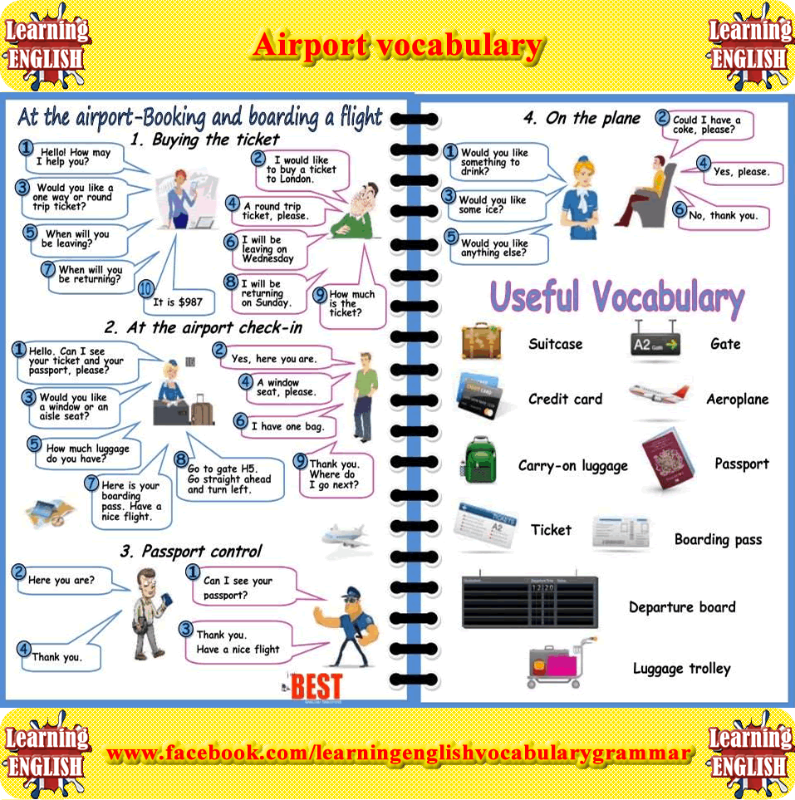 So this toy will become the main intermediary between you and your child in learning English. nine0003
So this toy will become the main intermediary between you and your child in learning English. nine0003
First of all, learn the alphabet and the correct pronunciation of letters and basic sounds with your child. Make it better with the help of the popular ABC Song. This is how the English alphabet is taught all over the world, not only by foreigners, but also by native speakers themselves.
Next - form basic English for children: words and simple phrases. For example, make cards for basic words that the child already knows in their native language. These can be household items, animals, body parts, etc. It is better that the cards are bright, with the spelling of a word and a picture symbolizing a particular subject. You can stick these cards on household items so that the child constantly sees the names of objects in English and memorizes them automatically. nine0003
Incorporate English words into your regular vocabulary when communicating with your child. In the context of what is happening around the baby, it will be much easier to understand and learn the language.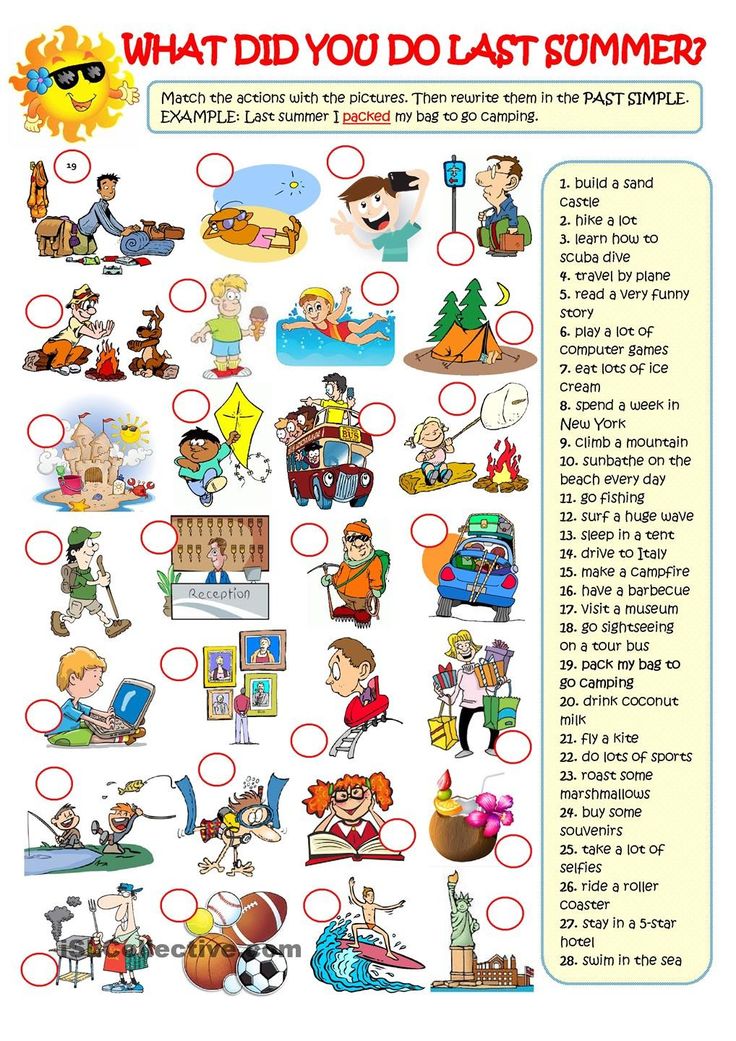 Playing at home or being outside, use the phrases and words you have already learned. If a child tells you: “Mom, look, a kitty!” Then answer: “Yes, it’s true, it’s a cat. How would it be in English? A cat. This is a cat.
Playing at home or being outside, use the phrases and words you have already learned. If a child tells you: “Mom, look, a kitty!” Then answer: “Yes, it’s true, it’s a cat. How would it be in English? A cat. This is a cat.
By the way, it's better to start learning not just individual words, but whole phrases at once, as in the example above. That is, to acquaint with the very, very basic grammar. After all, if you tell your child only words, he will only know the translation, and if you start using whole sentences, then he will memorize in sentences. nine0003
Visualization and variety are important for learning English with a child. Children may enjoy books in English with colorful pictures that can be read together at bedtime instead of the usual Russian fairy tales. Also, do not forget about special educational cartoons in English, where bright characters tell the child about the basics of the language or teach him the alphabet.
Play fun, educational games with your little one so they don't get bored while learning English. It can be cards, pantomimes, drawings and much more. nine0003
It can be cards, pantomimes, drawings and much more. nine0003
Basic set of words with transcription and translation
The first English words for children to start learning the language with are those that surround the child every day. Below you will find a list of such words by topic.
Family [ˈfæmɪli] - family
Mother [ˈmʌðə] - mother
Father [ˈfɑːðə] - father
Brother [ˈbrʌðə] - brother
Sister [ˈsɪstə] - sister
Grandmother [ˈgrænˌmʌðə] - grandmother
Grandfather [ˈgrændˌfɑːðə] - grandfather
Body [ ˈbɒdi ]
Head [head] - head
Hair [heə] - hair
Eyes [aɪz] - eyes
Nose [nəʊz] - nose
Teeth [tiːθ] - teeth
Lips [lɪps] - lips
Ears [ɪəz] - ears
Neck [nek] - neck
Shoulders [ˈʃəʊldəz] - shoulders
Leg [leg] - leg
Feet [fiːt] - feet
Pets [ pets ]
Dog [dɒg] - dog
Cat [kæt] - cat
Kitten [ˈkɪtn] - kitten
Puppy [ˈpʌpi] - puppy
Rabbit [ˈræbɪt] - rabbit
Parrot [ˈpærət] - parrot
Fish [fɪʃ] - fish
Hamster [ˈhæmstə] - hamster
Snake [sneɪk] - snake
Turtle [ˈtɜːtl] - turtle
Animals [ ˈænɪməlz ]
Goat [gəʊt] - goat
Pig [pɪg] - pig
Sheep [ʃiːp] - sheep
Horse [hɔːs] - horse
Cow [kaʊ] - cow
Goose [guːs] - goose
Chicken [ˈʧɪkɪn] - chicken
Duck [dʌk] - duck
Cockerel [ˈkɒkərəl] - cock
Fox [fɒks] - fox
Wolf [wʊlf] - wolf
Bear [beə] - bear
Hare [heə] - hare
Elephant [ˈelɪfənt] - elephant
Tiger [ˈtaɪgə] - tiger
Lion [ˈlaɪən] - lion
Crocodile [ˈkrɒkədaɪl] - crocodile
Giraffe [ʤɪˈrɑːf] - giraffe
Colors
Red [red]
Green [griːn] - green
Blue [bluː] - blue
Orange [ˈɒrɪnʤ] - orange
Yellow [ˈjeləʊ] - yellow
Pink [pɪŋk] - pink
Gray [greɪ] - gray
Black [blæk] - black
White [waɪt] - white
Purple [ˈpɜːpl] - purple
Brown [braʊn] - brown
Food
Water [ˈwɔːtə] - water
Tea [tiː] - tea
Juice [ʤuːs] - juice
Sugar [ˈʃʊgə] - sugar
Salt [sɒlt] - salt
Yogurt [ˈjɒgət] - yogurt
Bread [bred] - bread
Milk [mɪlk] - milk
Cheese [ʧiːz] - cheese
Eggs [egz] - eggs
Butter [ˈbʌtə] - oil
Meat [miːt] - meat
Cookies [ˈkʊkiz] - cookies
Chocolate [ˈʧɒkəlɪt] - chocolate nine0057
Fruits [ fruːts ]
Apple [ˈæpl] - apple
Pear [peər] - pear
Orange [ˈɒrɪnʤ] - orange
Banana [bəˈnɑːnə] - banana
Lemon [ˈlemən] - lemon
Pineapple [ˈpaɪnˌæpl] - pineapple
Grapes [greɪps] - grapes
Kiwi [ˈkiːwi:] - kiwi
Tangerine [tæn(d)ʒəˈriːn] — Mandarin
Melon [ˈmelən] - melon
Watermelon [ˈwɔːtəˌmelən] - watermelon
Peach [piːʧ] - peach
Vegetables
Carrot [ˈkærət] - carrot
Onion [ˈʌnjən] - bow
Garlic [ˈgɑːlɪk] - garlic
Tomato [təˈmɑːtəʊ] - tomato
Cabbage [ˈkæbɪʤ] - cabbage
Pepper [ˈpepər] - pepper
Potato [pəˈteɪtəʊ] - potato
Cucumber [ˈkjuːkʌmbə] - cucumber
House [haʊs]
Bedroom [ˈbedruːm] - bedroom
Living room [ˈlɪvɪŋ ruːm] - living room
Kitchen [ˈkɪʧɪn] - kitchen
Bathroom [ˈbɑːθruːm] - bathroom
Fridge [frɪʤ] - refrigerator
Cooker [ˈkʊkə] - plate
Table [ˈteɪbl] - table
Chair [ʧeə] - chair
Sofa [ˈsəʊfə] - sofa
Bed [bed] - bed
Window [ˈwɪndəʊ] - window
Mirror [ˈmɪrə] - mirror
Towel [ˈtaʊəl] - towel
Toothbrush [ˈtuːθbrʌʃ] - toothbrush
Toothpaste [ˈtuːθpeɪst] - toothpaste
Wardrobe [ˈwɔːdrəʊb] - wardrobe
Cup [kʌp] - mug
Plate [pleɪt] - plate
Bowl [bəʊl] - bowl
Fork [fɔːk] - fork
Spoon [spuːn] - spoon
Knife [naɪf] - knife
Clock [klɒk] - hours
Clothes [ kləʊðz ]
Dress [dres] - dress
Skirt [skɜːt] - skirt
Shirt [ʃɜːt] - shirt
T-shirt [ˈtiːʃɜːt] - T-shirt
Jeans [ʤiːnz] - jeans
Trousers [ˈtraʊzəz] - pants
Shorts [ʃɔːts] - shorts
Jumper [ˈʤʌmpə] - sweater
Suit [suːt] - suit
Coat [kəʊt] - coat
Hat [hæt] - hat
Socks [sɒks] - socks
Months [ mʌnθs ] - months
January [ˈʤænjʊəri] - January
February [ˈfebrʊəri] - February
March [mɑːʧ] - March
April [ˈeɪprəl] - April
May [meɪ] - May
June [ʤuːn] - June
July [ʤu(ː)ˈlaɪ] - July
August [ˈɔːgəst] - August
September [sepˈtɛmbər] - September
October [ɒkˈtəʊbə] - October
November [nəʊˈvembə] - November
December [dɪˈsembə] - December
Weather [ ˈweðə ]
Sun [sʌn] - sun
Rain [reɪn] - rain
Cloud [klaʊd] - cloud
Wind [wɪnd] - wind
Snow [snəʊ] - snow
Fog [fɒg] - fog
Cold [kəʊld] - cold
Hot [hɒt] - hot
Winter [ˈwɪntə] - winter
Spring [sprɪŋ] - spring
Summer [ˈsʌmər] - summer
Autumn [ˈɔːtəm] - autumn
This list of first English words for children is far from complete.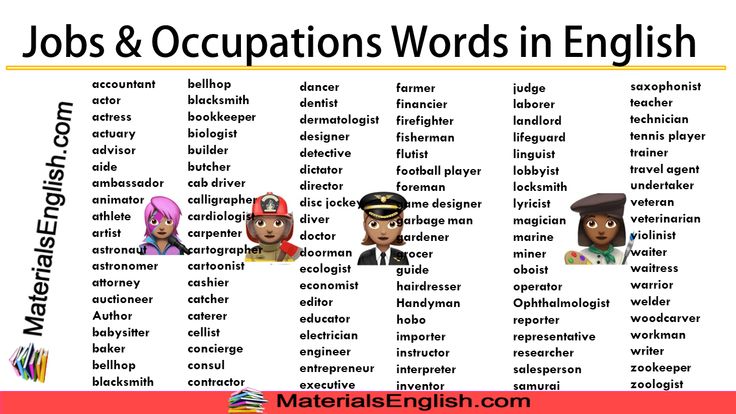 Include in it those words that the child encounters daily.
Include in it those words that the child encounters daily.
And most importantly, do not forget: in order to teach your child English from an early age, you need to be confident in your knowledge. You can check your level of English before you start learning the language with your child here. nine0059
Spoken English - what should be the vocabulary.
If you're looking at the Oxford Dictionary now and thinking, "I'll never learn that many words!" - take a break from sad thoughts and read this article. How many words do you really need to know? You may be pleasantly surprised!
English test
Find out your level, get learning tips and a promo code for English lessons as a gift
One-two-three-four-five... How many words should I know? Sam Jandreau, founder of the Lingholic project, will answer this question.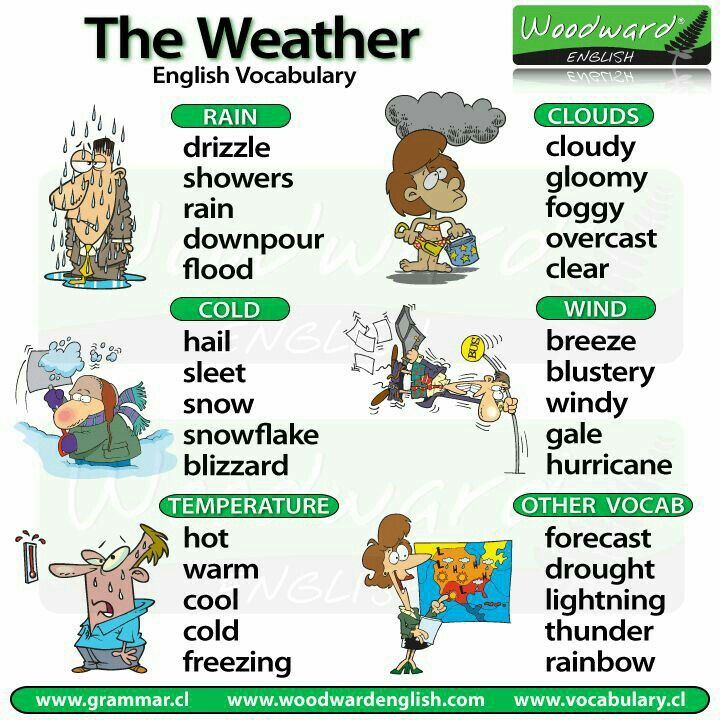 He will talk about what the 95/5 rule is and how it works for those who learn a foreign language. No magic, just math! He will talk about what the 95/5 rule is and how it works for those who learn a foreign language. No magic, just math! |
Word, show your passport!
English students often ask, "How many words do I need to learn to be able to hold a conversation on any topic?" Good question, but before answering it, let me ask you another one: How many words do you think the English language has? A question to which there is no intelligible answer. Why? It is impossible to count the number of words in a language for one simple reason - it is difficult to decide what counts as a word. nine0003
It is claimed, for example, that for the word "set" the Oxford Dictionary gives 464 definitions. Should we consider a polysemantic word as one word or each interpretation as a separate word? And what about phrasal verbs: “set up”, “set about”, “set apart”, etc.? And what about the so-called open compounds - words like "hot dog", "ice cream", "real estate"? Add to this the singular and plural forms, verb conjugations, different endings, prefixes and suffixes, and you will understand why it is so problematic to answer how many words there are in the English language.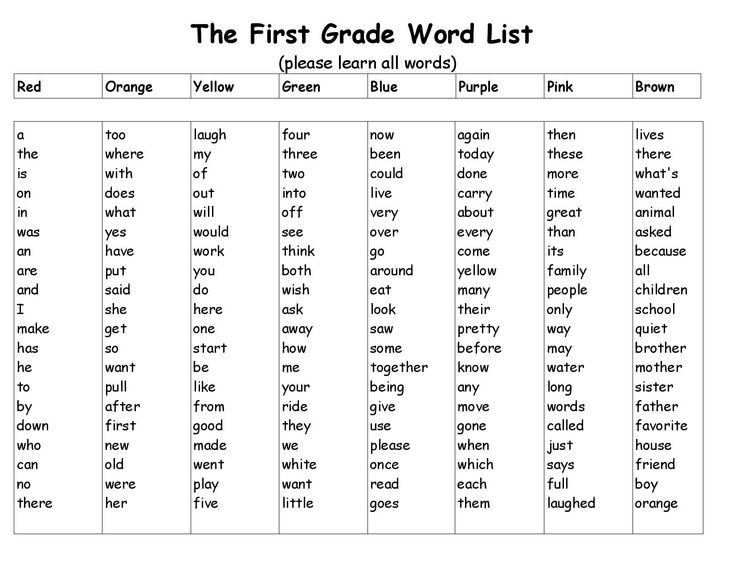 nine0003
nine0003
The question should really be: "Do you know how many words are in the largest dictionary of the English language?" If you roughly imagine the number of words in a language, it can be compared with the number of words used 90-95% of the time in everyday speech and in the news.
Demo lesson for free and without registration!
Take a lesson, find out about the school and get a promotional code for English classes
Less words - more action
In 1960, the famous American children's writer Theodore Seuss Geisel (better known under the pseudonym Dr. , "The Cat in the Hat", "The Lorax", etc.) published the book "Green Eggs and Ham". The book was written in just 50 words and was the result of a dispute between Seuss and his publisher, Bennett Cerf. The publisher believed that Seuss would not be able to create a finished work in such harsh conditions (before that, Seuss had already written "The Cat in the Hat", which featured 225 words).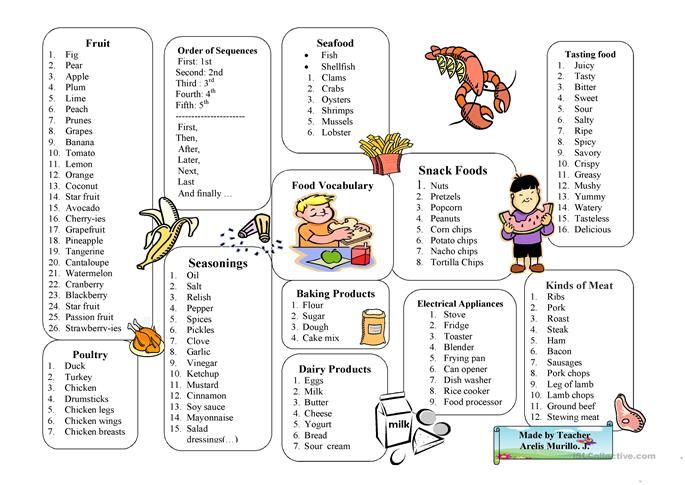 nine0003
nine0003
If it's possible to write a book in just 50 words, does that mean we don't need 40,000 words to communicate with each other? Note, however, that according to Susie Dent, a lexicographer, the average active vocabulary of an adult English speaker is about 20,000 words, and the passive one is about 40,000 words.
What is the difference between active and passive vocabulary? In simple terms, active vocabulary includes words that you can remember on your own and apply. As for the passive vocabulary, these are those words that you recognize, the meaning of which you know, but which you are not able to use yourself. nine0003
How many words do you know, sir?
And here we come to the most interesting part. On the one hand, an adult native English speaker has an active vocabulary of about 20,000 words. On the other hand, The Reading Teacher's Book of Lists states that the first 25 words are used in 33% of everyday written texts, the first 100 words in 50%, and the first thousand words occur in 89% of such texts!
Thus, we can safely say that only 3000 words cover about 95% of general texts (news articles, blog entries, etc.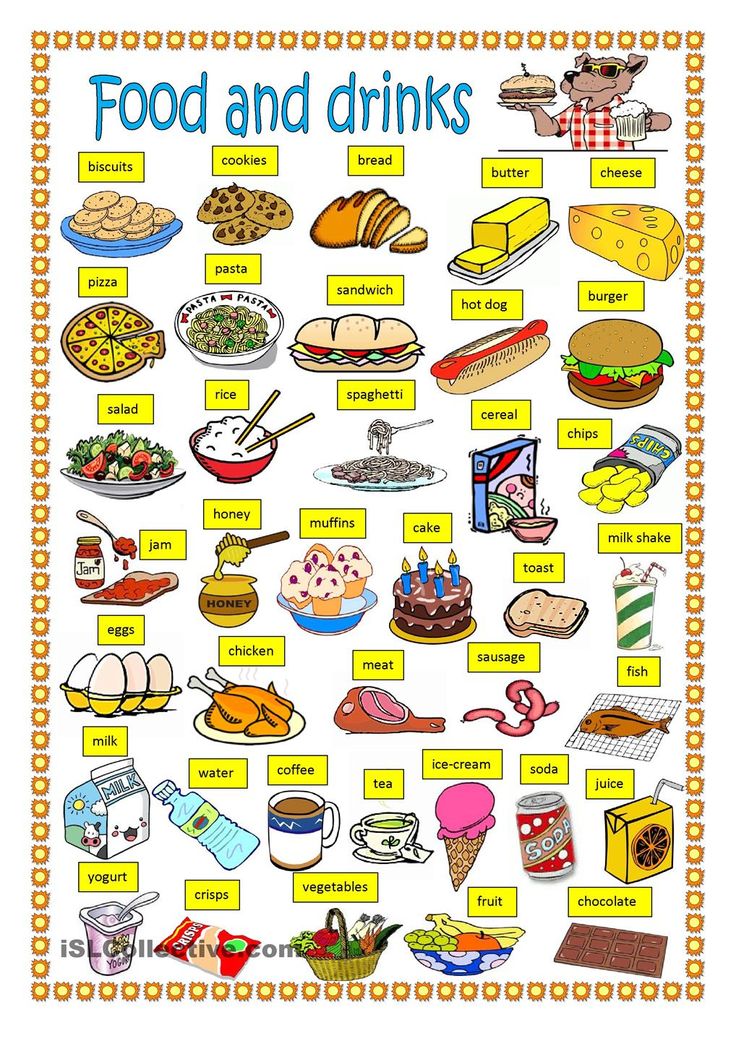 ). Liu Na and Nation proved that 3000 is the approximate number of words we need to know in order to understand the rest from context when reading unsimplified texts. nine0003
). Liu Na and Nation proved that 3000 is the approximate number of words we need to know in order to understand the rest from context when reading unsimplified texts. nine0003
Do the math!
The Oxford English Dictionary contains 171,476 common words. 95% of general texts cover a vocabulary of only 3,000 words. That's 1.75% of all words!
That's right: knowing 1.75% of the English vocabulary, you can understand 95% of what you read. This is only 7.5% of the average passive vocabulary of a native speaker (40,000 words). Isn't it great?
On the Pareto law and the importance of linguistic guesswork
You may have heard of Pareto's Law, also known as the 80/20 principle. The Italian engineer and philosopher Vilfredo Pareto studied numerous phenomena and subjects, from land ownership to pea pods, and as a result he deduced a rule that was called Pareto's law: 20% of causes produce 80% of effects.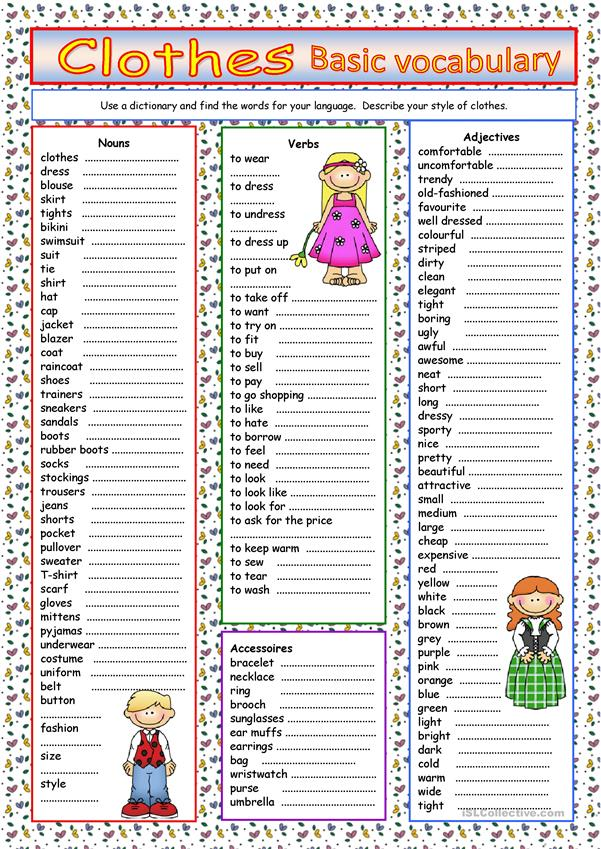 Or, if you apply the law to study or work: 20% of efforts give 80% of the result.
Or, if you apply the law to study or work: 20% of efforts give 80% of the result.
English learners need to understand 90-95% of the most commonly used words in everyday life. Where exactly do these numbers come from? Approximately as many words you need to know in order to understand well what is written and said. In addition, having learned just that many words, you can guess the meaning of the remaining 5-10% simply from the context! Not exactly 80/20, but the principle is the same: only a small part of your efforts will bring significant results. nine0003
This is an extremely important moment! If you have already reached a high level of understanding of the language, this means that it is time to close the dictionary and allow yourself to learn "inductively", from context and by guesswork. You already do this every day - after all, no one knows all the words in their native language. So why not do the same with English?
Weigh your vocabulary!
So, if you achieve an understanding of 95% of the most commonly used words in a language, you can understand the rest of the unfamiliar words from the context.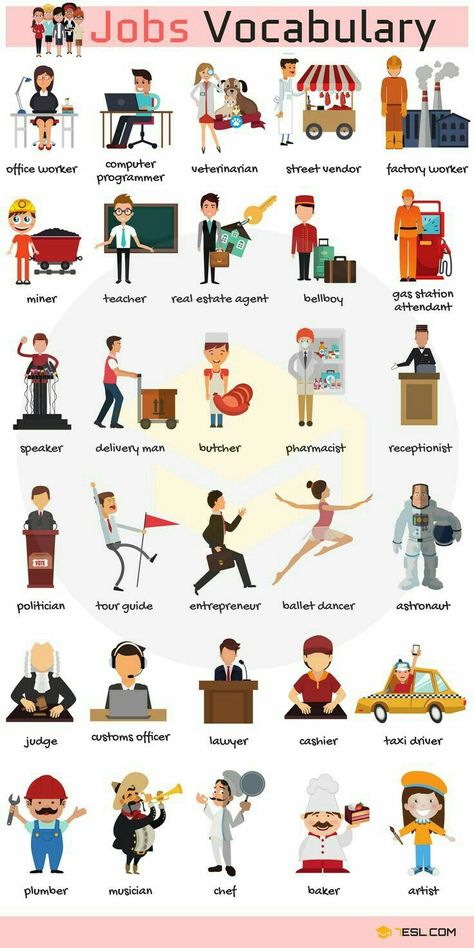 nine0003
nine0003
Of course, knowing the words does not mean perfectly understanding what you are listening to or reading, because language is also grammar, phraseological units and figures of speech that can (and will) get in your way. A sentence can consist entirely of words that are perfectly familiar to you and at the same time be completely incomprehensible - precisely because of such linguistic phenomena.
Despite this, in most cases, knowing 90-95% of the words in a sentence and context allows you to understand and communicate in a language without much difficulty - especially if it belongs to the same language family as your native language. nine0003
Yes, the English language has a huge number of words, so for many it seems like an impregnable fortress that will take decades to take. In reality, if from the very beginning you learn words in context, step by step building up your vocabulary "arsenal" to 2500-3000 units, it is really possible in a short time to reach a level at which you can read general texts and understand 90-95% of what is said .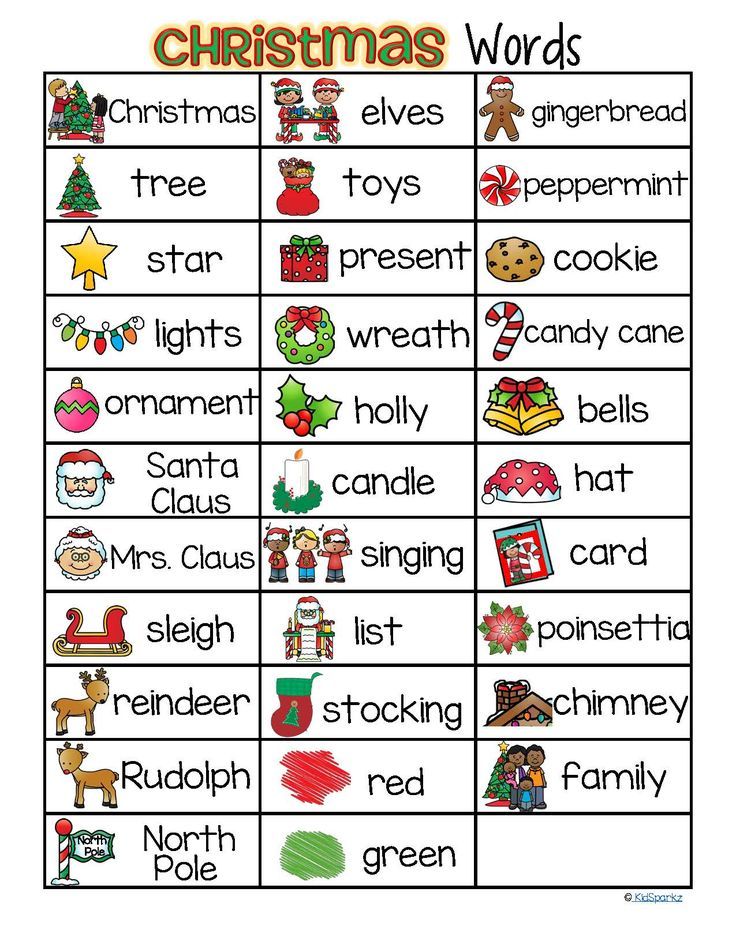
This is the ideal number, exactly how many words you need to learn in order for the experience of reading foreign texts to be successful. This is also the approximate number of words that you need to know in order to catch the meaning of the remaining words from the context. nine0003
"Golden" 3 thousand words
To make the difficult task of learning English easier for us, the scientists behind the Oxford English Dictionary have tried to compile the TOP 3000 most important words to learn first - The Oxford 3000™:
http://www.oxfordlearnersdictionaries.com/wordlist/english/oxford3000/
iPhone Mobile:
https://itunes.apple.com/us/app/learn-the-oxford-3000/id939586542? mt=8 (US$7.99)
An alternative from the creators of Merriam-Webster's 3,000 Core Vocabulary Words:
http://www.learnersdictionary.com/3000-words
How to assess your vocabulary
On the most popular site http:// testyourvocab.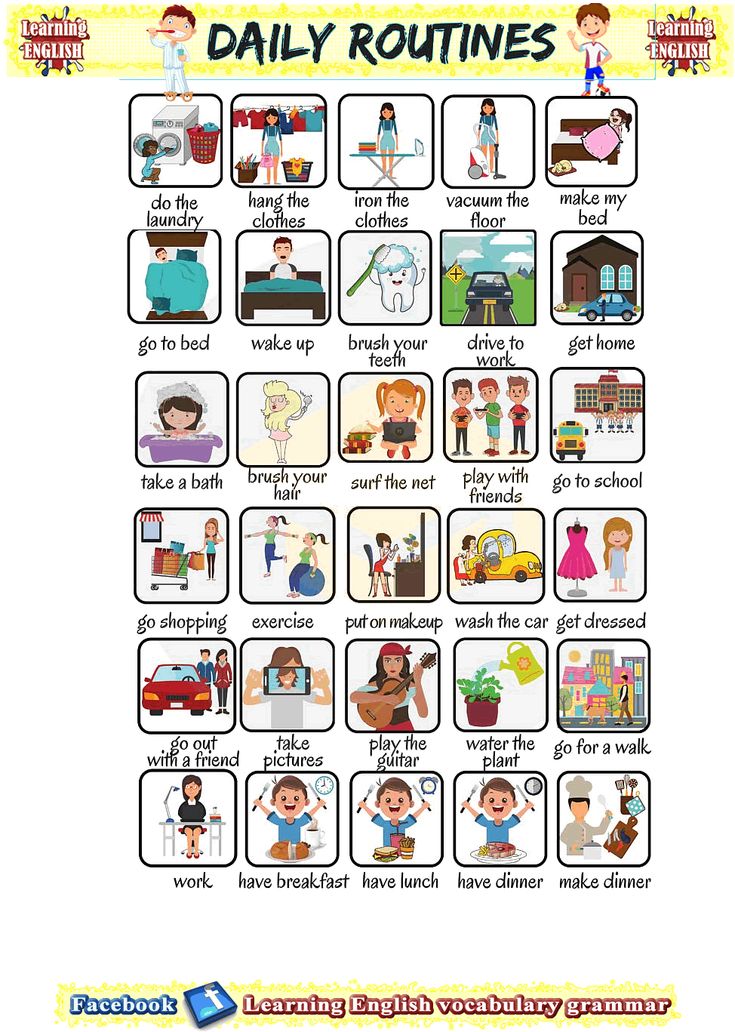 com/ you can roughly estimate the size of your vocabulary.
com/ you can roughly estimate the size of your vocabulary.
Interesting:
- Most adult native speakers who take the test have a vocabulary of 20,000-35,000 words nine0510 At the age of 4, an ordinary native speaker of English has a baggage of 5,000 words, and at the age of 8 years - of 10,000 words
- The rate of replenishment of the vocabulary of an adult native speaker is 1 word per day (however, this process usually stops in middle age)
- The average size of the vocabulary of those test participants for whom English is not their native language was 4,500 words
- Living in an English-speaking country enriches an English learner's vocabulary to 10,000 or more words
- Living in an English-speaking country, foreigners learn and assimilate about 2.5 new words per day
To assess your vocabulary, you can use the following resources: /www.
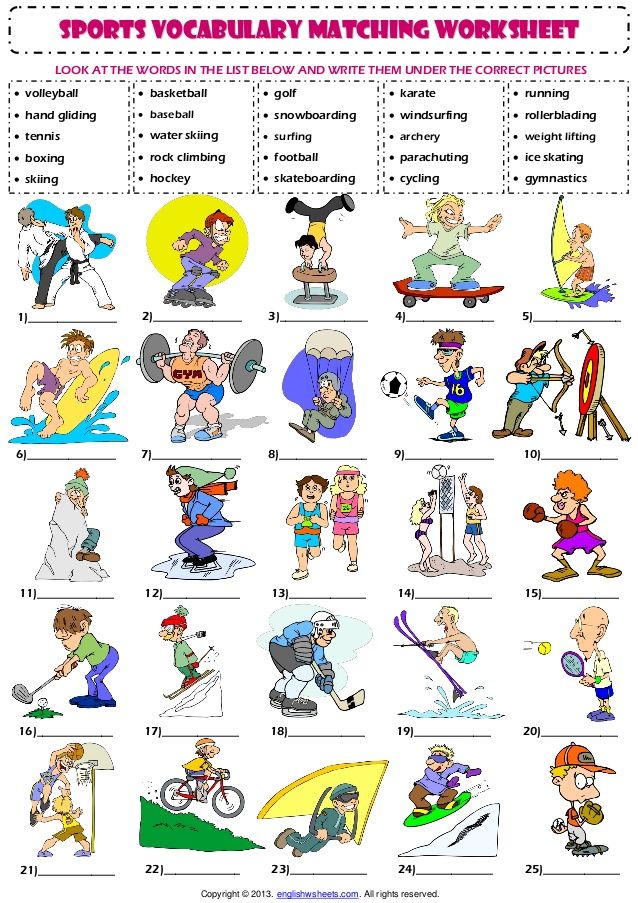

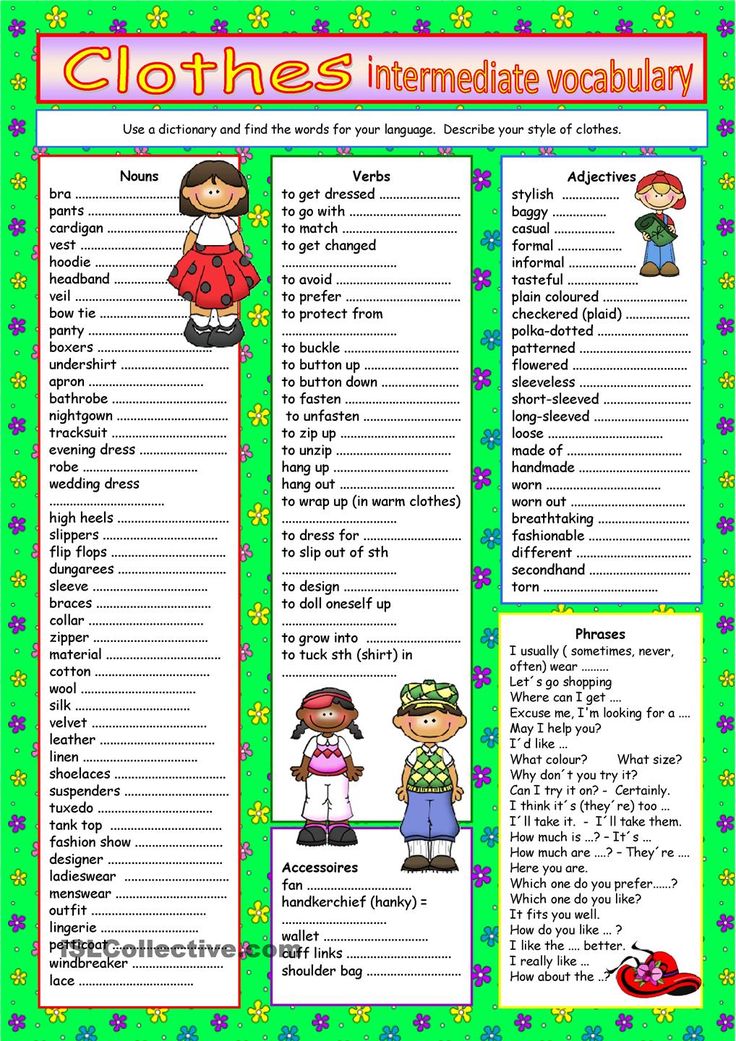 *
*
